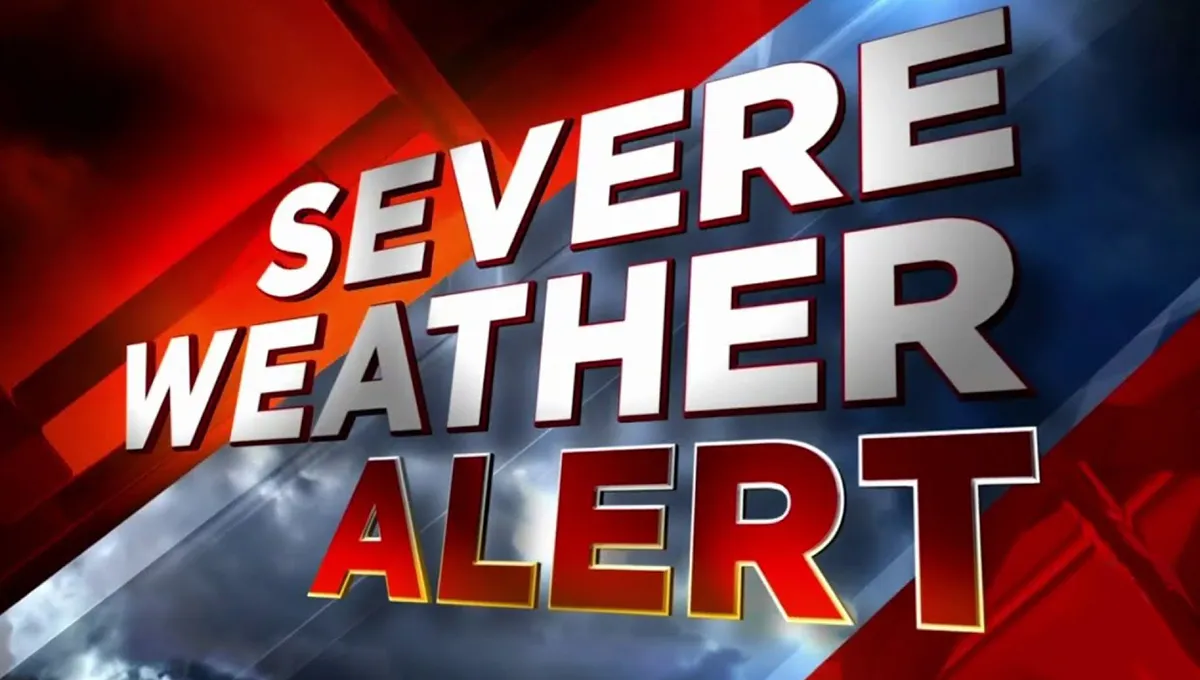Severe Weather Alerts
Severe Weather Alerts – Excessive weather can strike all at once, posing considerable dangers to lives and assets. In contemporary years, the frequency and depth of excessive weather sports have improved, making it important for humans and groups to live knowledgeable and organized. This newsletter delves into the arena of extreme climate signals, exploring their significance, how they paint, and the technology that facilitates them. By means of manner of expertise of intense weather signals, you could take proactive steps to defend yourself and your family at some unspecified time in the future in volatile climate conditions.
Understanding Severe Weather Alerts
What Are Severe Weather Alerts?
Severe climate indicators are warnings issued via meteorological companies to notify the general public approximately doubtlessly hazardous climate situations. These indicators aim to offer timely data approximately sports which encompass thunderstorms, tornadoes, hurricanes, blizzards, and floods. By alerting people earlier, they have got a higher hazard to put together and take vital precautions.
The Importance of Severe Weather Alerts
Severe weather alerts play a vital role in safeguarding communities. They assist to lessen the impact of herbal disasters by giving people and authorities adequate time to devise and respond efficaciously. These alerts enable people to evacuate from vulnerable regions, search for shelter, and comfortable their property. Furthermore, timely facts can save lives by using permitting people to avoid dangerous situations.
See also: How to Earn Money Online in the USA
How Severe Weather Alerts Work
Excessive weather alerts are generated by the use of sophisticated forecasting systems that analyze meteorological facts from numerous sources. When conditions meet specific criteria for a severe weather event, alerts are issued. The signs are then disseminated via specific channels, which include radio, tv, cellular apps, and emergency alert structures.
Types of Severe Weather Alerts
Thunderstorm Alerts
Thunderstorm indicators warn approximately the presence of thunderstorms, which can carry heavy rain, lightning, sturdy winds, and from time to time hail. Lightning can be dangerous, especially outdoors, and strong winds may cause property damage.
Tornado Alerts
Tornado alerts are issued when a tornado has been spotted or indicated by radar. Tornadoes are violently rotating columns of air that can cause devastating damage. Taking shelter immediately upon receiving a tornado alert is crucial for survival.
Hurricane and Tropical Storm Alerts
Hurricane and tropical storm alerts provide advance notice of approaching tropical cyclones. Those storms convey robust winds, heavy rainfall, and storm surges, and can result in enormous destruction.
Blizzard Alerts
Blizzard alerts warn about severe winter storms characterized by strong winds, low temperatures, and heavy snowfall, leading to limited visibility and dangerous travel conditions.
Flood Alerts
Flood signals indicate the ability for flooding in particular regions due to heavy rainfall or different elements. Flooding can be lifestyle-threatening and cause large belongings damage.
The Role of Technology in Severe Weather Alerts
Weather Apps and Websites
Modern technology has made it easier than ever to access real-time weather information. Weather apps and websites offer customizable alerts, allowing users to receive notifications for specific weather events based on their location.
Emergency Alert Systems
Emergency alert systems are designed to automatically broadcast severe weather warnings through various channels, including radio, television, and mobile devices. These systems ensure that critical alerts reach a wide audience promptly.
Weather Radios
Weather radios provide dedicated weather alerting, broadcasting alerts directly from the National Weather Service. They are especially useful in areas with poor cellular coverage or during power outages.
How to Stay Safe During Severe Weather
Preparing for Severe Weather
Being prepared is essential in minimizing the impact of severe weather. Create an emergency kit, have a family communication plan, and know the evacuation routes in your area.
During a Severe Weather Alert
While an intense weather alert is issued, stay tuned to nearby information and climate updates. Seek shelter immediately if necessary, and avoid unnecessary travel.
After a Severe Weather Event
After an intense weather occasion, check your surroundings for risks, and avoid downed electricity strains and flooded areas. Contact authorities if assistance is required.
The Future of Severe Weather Alerts
As technology keeps boosting, so will the accuracy and pace of intense weather alerts. Integrating facts from more than one asset, such as satellites and climate stations, will result in greater reliable predictions. Additionally, the use of synthetic intelligence and gadget studying will decorate forecasting fashions, supplying even extra precise indicators.
End
Extreme weather alerts are critical equipment that empowers individuals and communities to reply successfully to doubtlessly lifestyles-threatening climate situations. By staying informed and prepared, you can protect yourself and your own family from the dangers of severe climate activities.
People also ask (FAQs)
What should I do if I receive a severe weather alert?
Upon receiving a severe weather alert, take it seriously and follow the recommended actions. Seek shelter, stay indoors, and tune in to local news for updates.
Can severe weather alerts be false alarms?
While rare, false alarms can happen due to the dynamic nature of weather systems. However, it’s essential to treat all alerts seriously to ensure safety.
Are there alerts for specific weather conditions like hail or lightning?
Yes, some weather apps and systems can issue alerts for specific weather conditions, including hail, lightning, and other severe events.
How can I customize the alerts I receive?
Many weather apps and websites allow users to customize their alerts based on location and the types of weather events they want to be notified about.
How often should I check for severe weather updates?
During severe weather conditions, it’s essential to stay updated frequently. Tune in to local news and weather sources for the latest information and any changes in the weather forecast.











